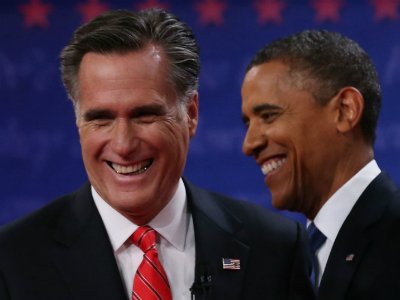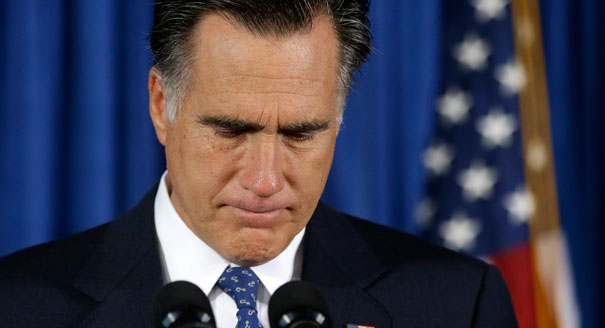by Joshua Samac and Alexander Brown | Emerging Security Program
Monday night marked the third and final debate between President Barack Obama and Republican Candidate Mitt Romney where the nuances of strikingly similar foreign policies played out as a series of sound bites repeated the world over. The “horses and bayonets” meme viralized the twitterverse almost immediately – chalk one up on the score board for President Obama. “The 1980s called – they want their foreign policy back” – chalk two up for President Obama. By these superfluous gotcha!-based metrics, Obama won the debate, and many viewers will walk away from last night with the impression that President Obama is apparently better equipped to deal with the troubled state of the world, while asserting American values in the twenty first century. Be that as it may, public perceptions of such displays are an important factor shaping voter behavior, but there is a dissonance between perceptions of stronger foreign policy and the reality of the situation which indicates that the two men bear strikingly similar dispositions on foreign policy.
[captionpix align=”left” theme=”elegant” width=”320″ imgsrc=”http://natoassociation.ca/wp-content/uploads/2012/10/obama-romney-debate.jpg” Obama and Romney agreeable on many issues last night “]
While the partisan rhetoric differed at times, the broad strokes of a moderate American vision that is constrained by the realities of a stagnating economy aligned. Republican Candidate Romney seemingly agreed with Obama on nearly every major established American foreign policy issue – be it Israel, Iran, China, or Russia. Naturally, their views diverged into their own respective left and right comfort zones, but they come from a similar, pragmatic foundation. And while they disagree on minor points in regards to the handling of situations in Syria and Libya, this seems to stem more from the fact that both nations are a fairly contemporary concern, and they bring with them less baggage and expectation for American policymakers and voters. Over the course of three debates both candidates have, perhaps surprisingly, revealed themselves to be mainstream moderates and such a revelation would surely bear its fare share of controversy behind the closed door of their respective parties.
Moreover, it has been suggested by pundits that Romney went into last night’s Foreign Policy Debate with the goal of proving to both Democrats and undecided voters alike, that on a global scale, he would not mirror the Bush Administration’s cavalier approach to foreign policy – an approach that was unpopular to say the least. And if that’s true, he succeeded, albeit for a fairly unexpected reason. Last night, viewers found Romney speaking from the comfort of a moderate centrist ideology. Again, while divergent at times, pragmatism was the name of the game. The practicality underlying an opposition to boots on the ground in Syria speaks volumes to Romney’s acceptance of the humanistic values that would seemingly serve as the preamble to becoming a Democrat, but in fact these were qualities that he already possessed from his time as a moderate Republican senator from one of the most liberal states in the Union.
In the end, the only pronounced division during this Foreign Policy Debate came when the candidates attempted to steer the debate towards the economy, which even the most partisan voters on the left and the right would agree is the major issue at hand when it comes to choosing a candidate. That being said, a strong economy informs and influences a nation’s foreign policy. So it stands to reason that if elected – and recent polls have Romney’s surge holding steady – Romney’s foreign policy could change if his five-step economic plan proves to yield dividends for the American economy. After all, it’s easy to play to a moderate base when times are tough, money is tight, and one has no other options. Ironically enough, this was the same situation that Obama inherited four years ago but, as he has learned, playing to the electorate is one thing; executing those promises is another.




